Discover Click Here
Click Here

Click Here
Author: Recorded Future News
Subscribed: 5,471Played: 153,138Subscribe
Share
©2025 Recorded Future News
Description
The podcast that tells true stories about the people making and breaking our digital world. We take listeners into the world of cyber and intelligence without all the techie jargon. Every Tuesday and Friday, former NPR investigations correspondent Dina Temple-Raston and the team draw back the curtain on ransomware attacks, mysterious hackers, and the people who are trying to stop them.
318 Episodes
Reverse
Four years into Russia’s full-scale invasion of Ukraine, an air-defense officer named Zhan describes a battlefield dominated by drones and connectivity — and we return to a story about the tech detectives who trace the component parts that keep those weapons flying.
Learn about your ad choices: dovetail.prx.org/ad-choices
You’ve likely received a scam call or text at some point. Some of these messages come from elaborate compounds found mostly in Southeast Asia. These compounds look like call centers but operate more like prisons. In this CyberMonday crossover with WAMU’s 1A, we return to an episode and hear from listeners — on how these centers cropped up and what’s being done to stop them.
Learn about your ad choices: dovetail.prx.org/ad-choices
The early Internet was ushered in with this widespread hope about its utopian possibilities. But the founder of The Citizen Lab, Ron Deibert, suspected there was a dark underbelly of government surveillance and censorship lying beneath and he was determined to unmask it.
Learn about your ad choices: dovetail.prx.org/ad-choices
As reports grow that Kim Jong-un’s teenage daughter could soon be formally designated as his successor — extending the family’s rule to a fourth generation — we’re revisiting a story about the outsiders who watch North Korea when almost no one else can. In a country closed to inspectors and journalists, open-source “tech detectives” comb through satellite images, videos, and propaganda for tiny clues, trying to piece together what the regime is actually doing — and what it wants the world to believe — as it prepares for what could be a historic handoff of power.
Learn about your ad choices: dovetail.prx.org/ad-choices
We return to a special Valentine’s Day episode, and look at the evolution of romance scams. They aren’t just about bilking lonely people out of their life savings anymore – scammers have diversified, and they’re making victims accomplices in a roster of cyber crimes from email scams and check fraud to money laundering.
Learn about your ad choices: dovetail.prx.org/ad-choices
Former astronaut Ed Lu once worried about asteroids. Now he’s turning his attention to space debris —and a new question it raises: could adversaries turn it into a weapon? Some officials are beginning to worry the answer may be yes.
Learn about your ad choices: dovetail.prx.org/ad-choices
A Cold War story about musicians, dissidents, and the quiet ways people push back when a system decides who gets to exist — and who doesn’t.
Learn about your ad choices: dovetail.prx.org/ad-choices
When Big Tech brought plans for a giant data center to St. Charles, Missouri, one college student decided to fight back. And it raises a question that small towns all over the US are asking: What happens when the cloud touches ground?
Learn about your ad choices: dovetail.prx.org/ad-choices
Car theft has gone digital. We talk to a white-hat hacker about how cars became computers on wheels—and why, in the race for smarter tech, safety is still trying to catch up.
Learn about your ad choices: dovetail.prx.org/ad-choices
Volvo built its reputation on safety. Then a software update nearly sent one driver off a cliff. We look at what happens when car companies start acting like tech companies — and discover the danger of “move fast and break things” on the open road.
Learn about your ad choices: dovetail.prx.org/ad-choices
As the Trump administration pressures Apple and Google to remove apps that track ICE activity from their stores, locals are going old-school. Francisco Chavo Romero, an LA-based activist, explains how it works.
Learn about your ad choices: dovetail.prx.org/ad-choices
When the Trump administration began rounding up immigrants, a new kind of resistance took shape — digital, crowdsourced, and built for the smartphone era. Activists used apps and social media to keep watch on the government. But before long, the government started watching back.
Learn about your ad choices: dovetail.prx.org/ad-choices
The A.I. boom is reshaping our world—and quietly guzzling power. This week, sustainable code advocate Stuart Clark explains how the race to build smarter machines is heating up our planet—and how we can code our way to a cleaner future.
Learn about your ad choices: dovetail.prx.org/ad-choices
What happens when you cross a marine biologist with a machine-learning engineer? You get someone who thinks humpback whales might be saying something meaningful—and that artificial intelligence could help us finally understand it.
Learn about your ad choices: dovetail.prx.org/ad-choices
We return to a story about bitcoin mining in Kentucky. When Richard Hunter heard about the state's generous crypto incentives, he packed up his bitcoin machines and pointed them south. He imagined a booming business, jobs for locals, and maybe — just maybe — a shot at redemption. But what he got … was a buzzkill.
Learn about your ad choices: dovetail.prx.org/ad-choices
Since the collapse of coal, Eastern Kentucky has lived through a procession of supposed revivals. Each new idea was treated as something close to salvation. But things like cryptocurrency and AI data centers may not offer a break with history – just a continuation of it. We return to a story we did last year about Kentucky's crypto mining industry.
Learn about your ad choices: dovetail.prx.org/ad-choices
Tech giants say artificial intelligence can outsmart the storm, predicting tomorrow’s weather faster than ever. We return to a conversation we had with Paris Perdikaris of the University of Pennsylvania. He tells us about a new tension: forecasts are only as good as the public data that fuels them – and now even that is in doubt.
Learn about your ad choices: dovetail.prx.org/ad-choices
Artificial intelligence is rewriting the rules of weather forecasting — spotting storms sooner, warning us faster, and increasing the potential to save lives. But cuts to NOAA and the National Weather Service threaten the very data that makes it possible. In this CyberMonday crossover with WAMU’s 1A, we hear from listeners as we return to an episode that takes us inside the green screens and satellite feeds to show what’s at stake.
Learn about your ad choices: dovetail.prx.org/ad-choices
China’s surveillance of Uyghurs has leapt from the physical world to the digital one. No longer just QR codes on doorways, it’s now hidden in cloud services and software updates. This week on Click Here’s Mic Drop, we return to a story on how digital tools meant to protect identity are being used to erase it.ERASED is a four-part investigation into how China is wiping Uyghur culture from existence — one law, one app, one person, one website at a time. From shuttered schools to vanishing websites, ERASED uncovers an authoritarian regime’s campaign to delete a culture — and the unlikely rebels racing to stop it.
Learn about your ad choices: dovetail.prx.org/ad-choices
In a small classroom in western China, children once learned to sing and count in the language of their ancestors — Uyghur. Then the doors were locked, and founder Abduweli Ayup went from teacher to enemy of the state. We return to the first episode in our series, ERASED.ERASED is a four-part investigation into how China is wiping Uyghur culture from existence — one law, one app, one person, one website at a time. From shuttered schools to vanishing websites, ERASED uncovers an authoritarian regime’s campaign to delete a culture — and the unlikely rebels racing to stop it.
Learn about your ad choices: dovetail.prx.org/ad-choices









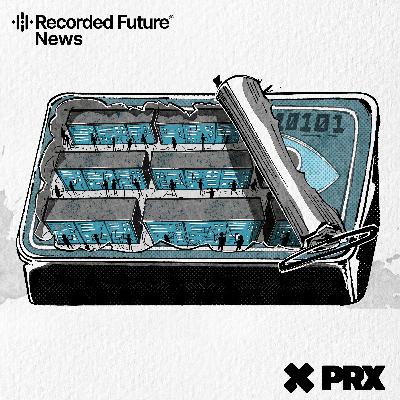
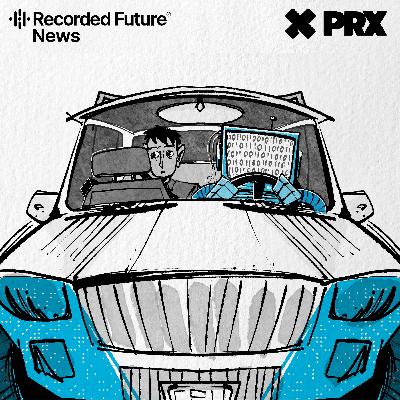
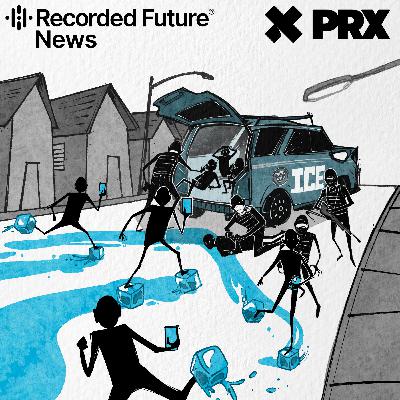
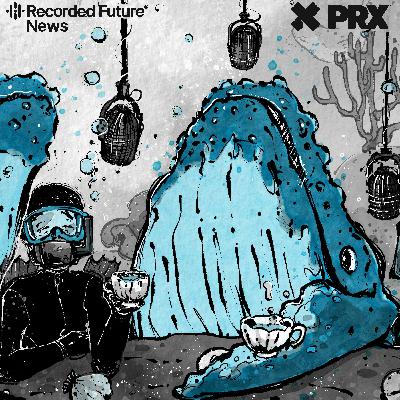




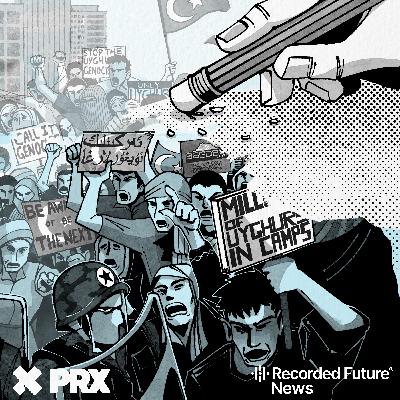



its baffling that a cybersecurity podcast host would pronounce nvidia "NEVIDA"
I look forward to this weekly podcast
i love this podcast